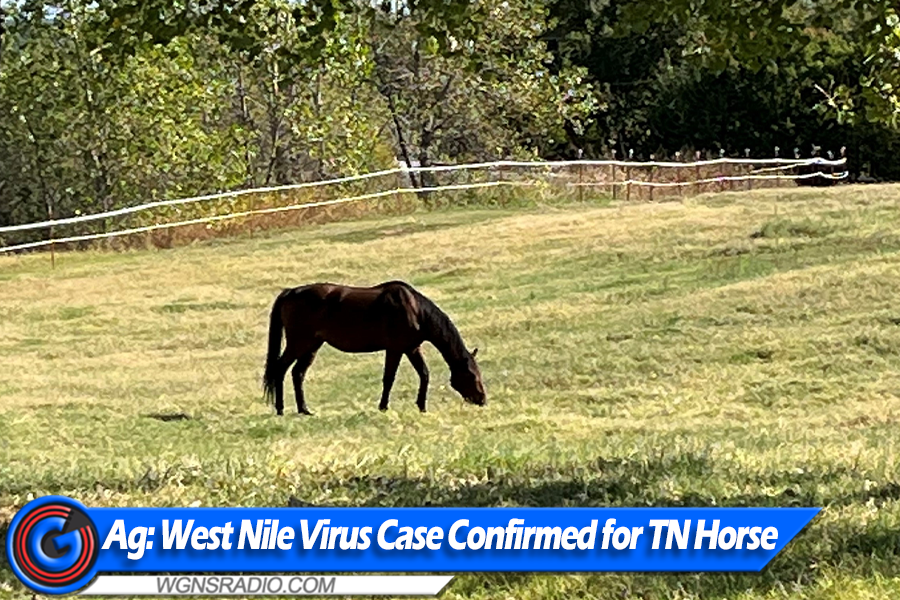Tennessee's state veterinarian confirms a horse in Weakley County, Tenn. tested positive for West Nile Virus (WNV). The horse was euthanized due to the severity of the case.
WNV is a mosquito-borne virus. Mosquitoes acquire WNV when they feed on infected birds and then spread the virus to people and other animals by biting them. While humans can be infected by WNV, the virus does not pass between people and horses, and horses do not transmit the infection to other horses. The only route of transmission is from a mosquito bite.
“We are always concerned when WNV is discovered in horses,” State Veterinarian Dr. Samantha Beaty said. “Approximately one-third of these horses will succumb to this disease, and those that recover can relapse and develop secondary issues. Additionally, from a One Health perspective, it alerts health officials to the presence of the virus in the environment.”
For horse owners, control of mosquitoes and vaccination against WNV are equally important. Horse owners should work with a veterinarian to determine an appropriate vaccination schedule. Horses living in locations with heavy mosquito infestation or year-round presence of mosquitos may require more frequent vaccination.
Continued...
West Nile Virus in TN Horse
Eliminate mosquito breeding sites by removing standing water and regularly cleaning water containers. It is also effective to minimize horses’ exposure to mosquitoes by using equine-approved repellents and fans in stalls.
The signs of WNV in horses range from mild, flu-like symptoms to inflammation of the brain, which can be fatal. Clinical symptoms may include lack of coordination and stumbling, fever, hind-end weakness, muscle tremors, excessive sweating, lips or head drooping, and teeth grinding. Effects of the disease usually present within 15 days after a bite from an infected mosquito. Some infected horses show no clinical signs of illness and recover.
The Tennessee Department of Agriculture’s Animal Health Division is responsible for promoting animal health in Tennessee. The state veterinarian’s office seeks to prevent the spread of disease through import and movement requirements, livestock traceability, disaster mitigation, and the services of the C.E. Kord Animal Health Diagnostic Laboratory. The division collaborates with other health-related stakeholders, academic institutions, and extension services to support One Health, an initiative to improve health for people and animals.






